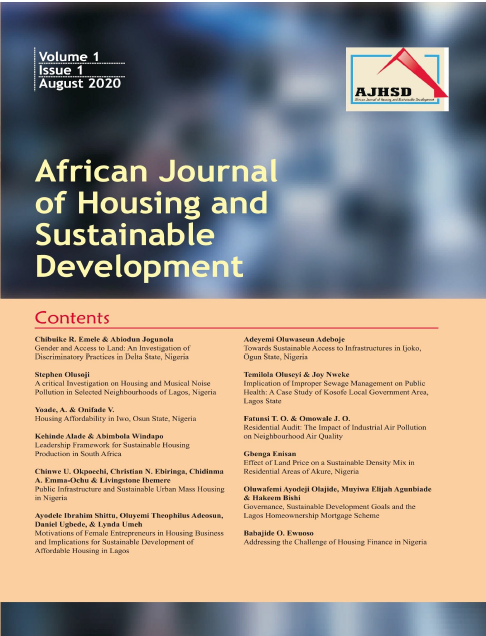Governance, Sustainable Development Goals and the Lagos Homeownership Mortgage Scheme
Abstract
Housing adequacy is critical to basic human survival, but its deficit remains a major challenge in many cities in Africa. The current global development framework Sustainable Development Goals (SDGs) refocused on the importance of adequate housing to urban sustainability. The SDGs advocate for effective governance framework to develop inclusive solutions to adequate housing. Within the contexts of SDGs 11 and 16, this study explores the Lagos Home Ownership Mortgage Scheme (Lagos HOMS) initiative through the lens of governance. Designed to intervene in vital aspects of the local housing market, the Lagos HOMS initiative targets Lagos residents' first-time homebuyers. Relying on mixed methods data sources, this study benefits from a Partnership for African Social and Governance Research (PASGR) funded research on the role of urban governance in transforming African cities, with Lagos as a case study. We analysed housing governance in Lagos focusing on the concepts of capacity, inclusiveness, accountability and contestation of the Lagos HOMS initiative within the context of sustainable development. Evidence suggests that the initiative ensured transparency and accountability but there was contestation around affordability. The study concludes that these observed policy inconsistencies led to the adoption of “rent-to-own” scheme considered to be 'affordable' and politically relevant but significantly eroded progress made by a hitherto transparent but generally criticised 'unaffordable' mortgage option. With these, we offer some policy recommendations towards achieving inclusive and sustainable housing outcomes in Lagos.

